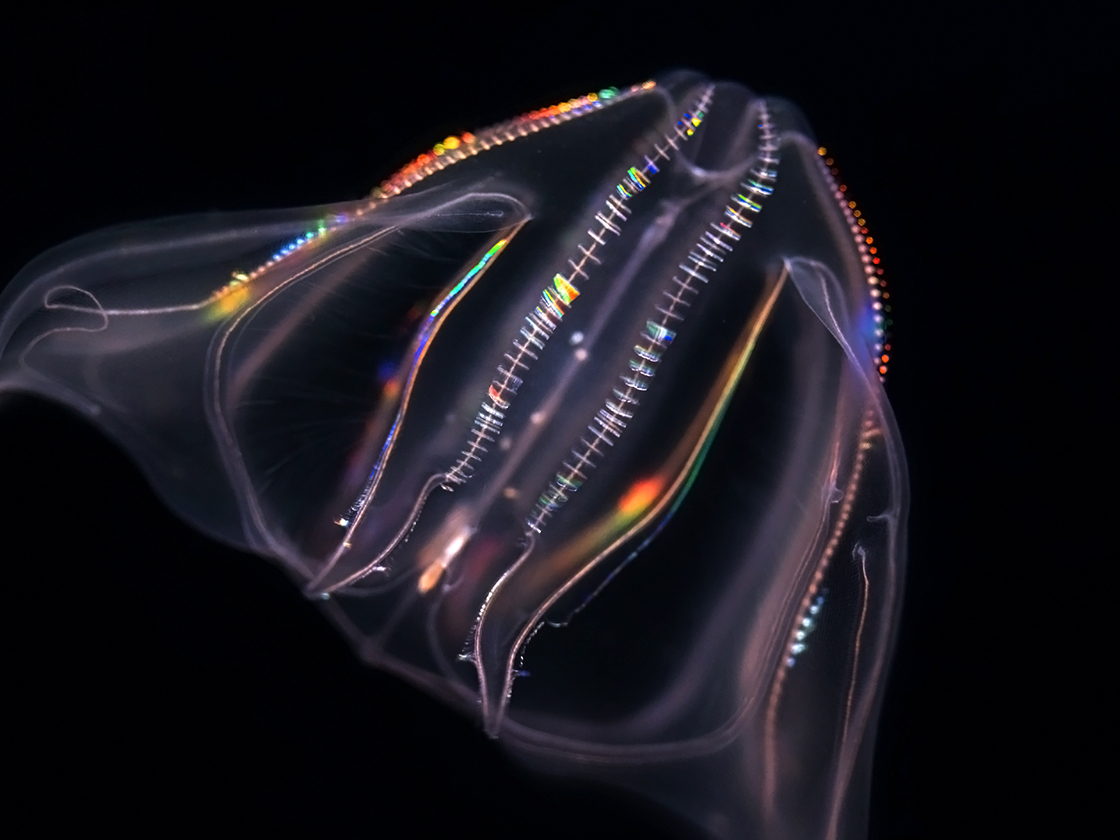Aquarium Releases Rehabilitated Sea Turtle
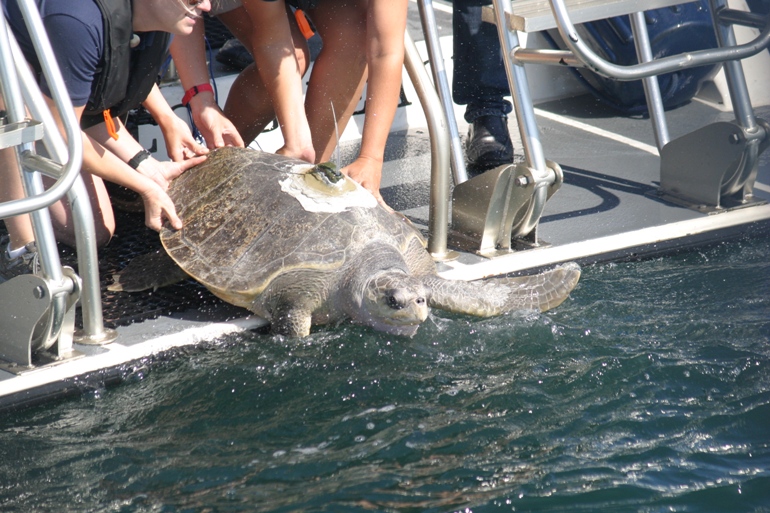
September 5, 2013
After being rehabilitated by the Aquarium of the Pacific for several months, an olive Ridley sea turtle was released back into the open ocean by husbandry staff members on September 5. As a permitted institution for helping stranded sea turtles, the Aquarium was selected by the National Oceanic and Atmospheric Administration’s National Marine Fisheries Service to provide veterinary care and housing for the rescued animal. The Port of Long Beach and Harbor Breeze Cruises assisted with the release.
Marine Animal Rescue found the sea turtle stranded on Venice Beach in January. It was severely underweight, hypothermic, and had buoyancy problems when it was rescued. Olive Ridley sea turtles are listed as endangered.
The turtle has been fitted with a satellite tag, so its movements can be tracked. Periodic updates will be posted to this page to show the turtle’s whereabouts.
UPDATE: Aquarium staff members stopped receiving data from the sea turtle’s transmitter as of October 16. Either the transmitter ran out of battery life or has fallen off the turtle. In the future, if the turtle is observed nesting on a monitored beach or found deceased, she can be identified by her flipper tags or passive integrated transponder (PIT) tag.
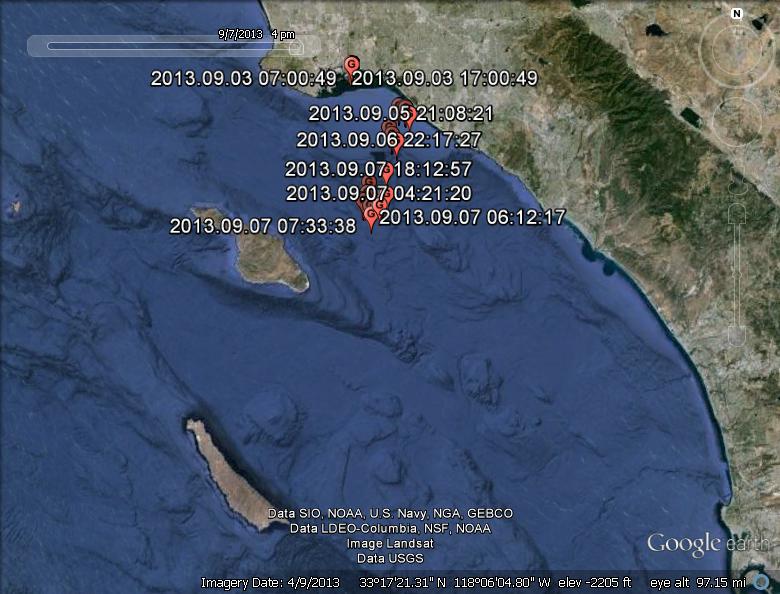
September 7: After its release in Long Beach on September 5, the turtle moved south along the coast before heading offshore in a southwest direction toward Catalina Island.
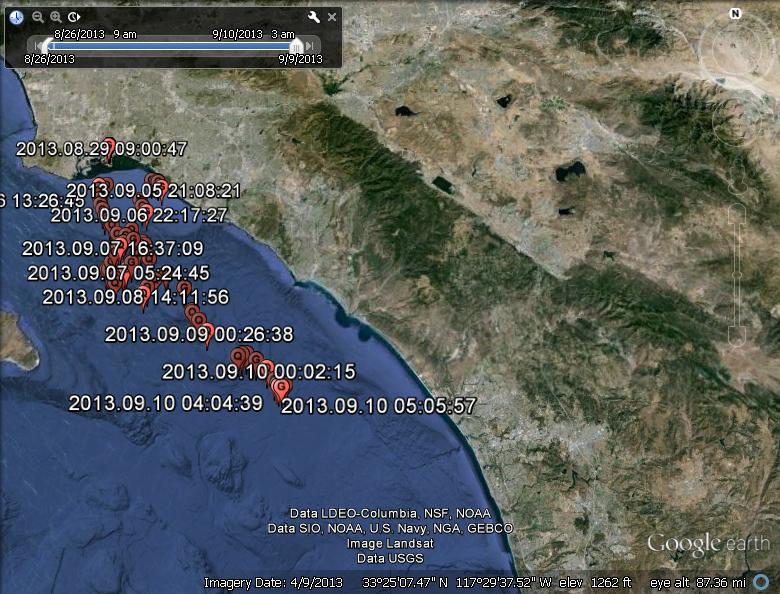
September 10: The turtle continues to move southwest and is about 36.5 miles from the release location and about 15 miles offshore.
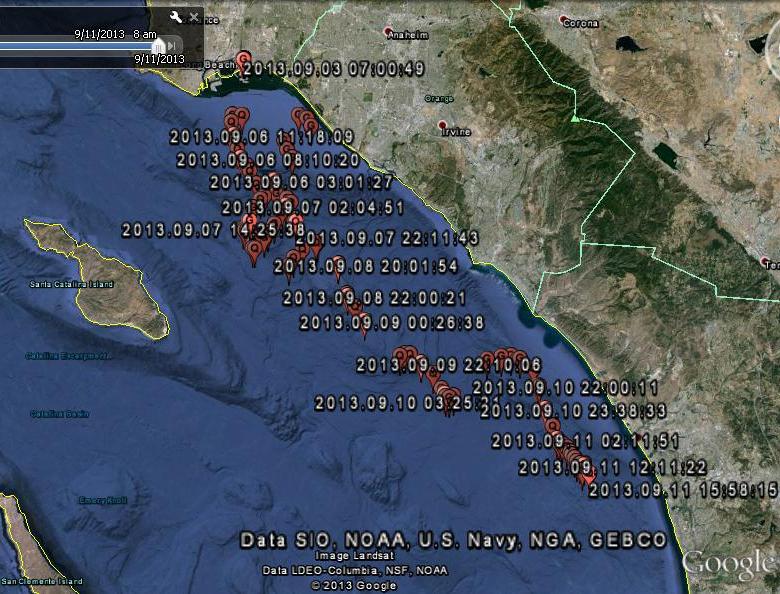
September 11, 5:00 p.m.: The turtle is about 51 miles from its release location and about 8 miles offshore from Oceanside, California, near an undersea feature called Carlsbad Canyon.
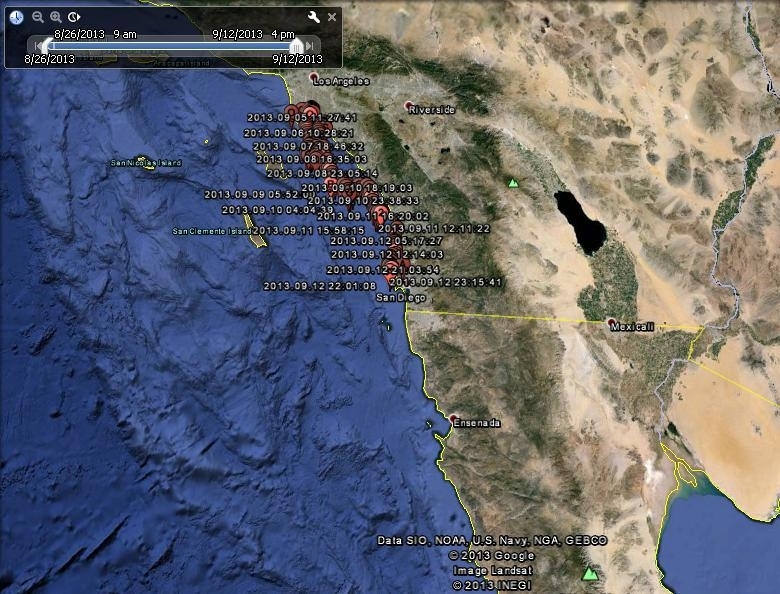
September 12: The turtle had a big swimming day and moved about 21 miles south from its position the day before. It came in close to the shore about 2 miles off San Diego. It will be interesting to see if it continues to migrate southward or stops for a break in San Diego Bay.
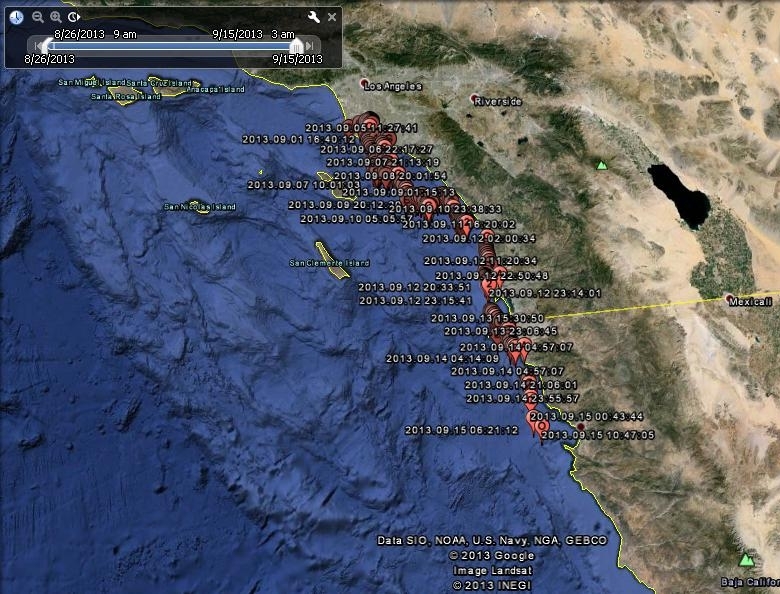
September 15: The sea turtle is about 155 miles south of her release location and is Mexico waters. She is approximately 17 miles off the coast from Ensenada and about 5 miles east of Isle de Todos Santos (All Saints Island).
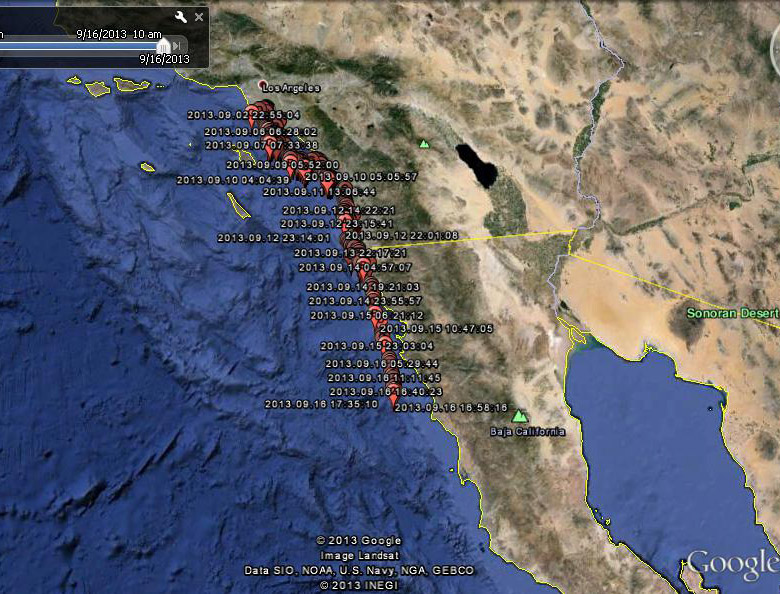
September 16: The turtle continues south and has traveled about 200 miles.
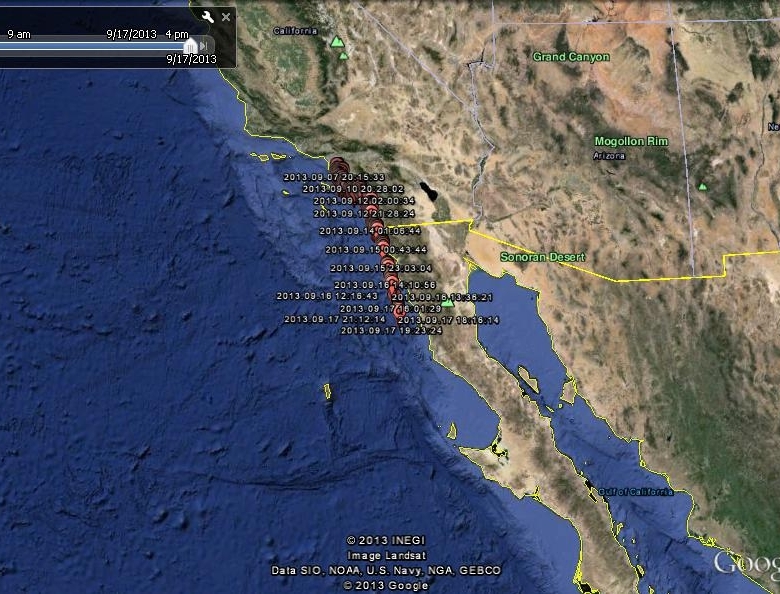
September 18: The turtle is now about 230 miles south of its release location.
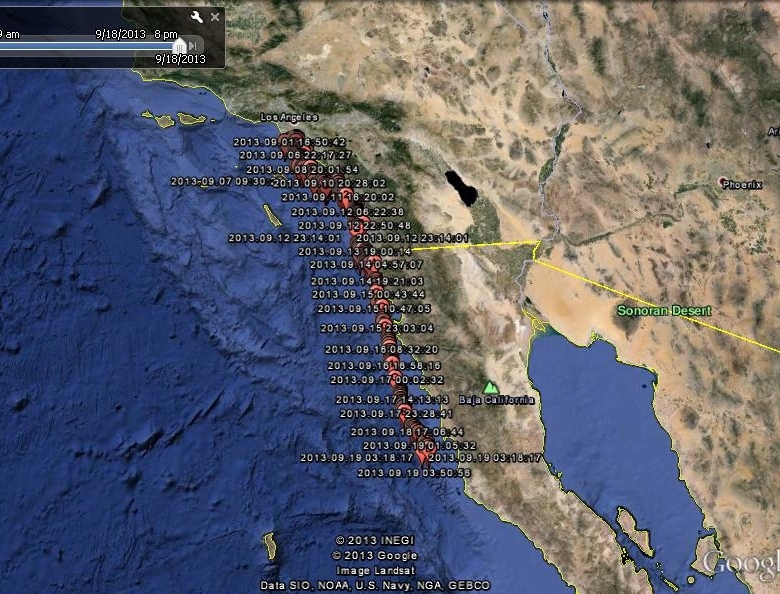
September 19: The sea turtle is about 290 miles south of the location where it was released two weeks ago. It is swimming about 20 miles per day on average.
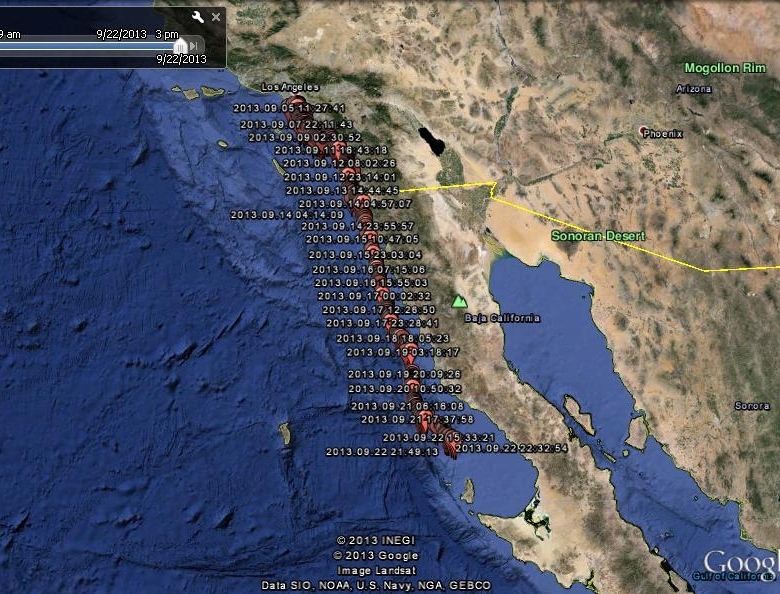
September 22: The turtle is approximately 390 miles from the release location and is still traveling south. The most recent temperature data reports the water temperature to be about 68 degrees.
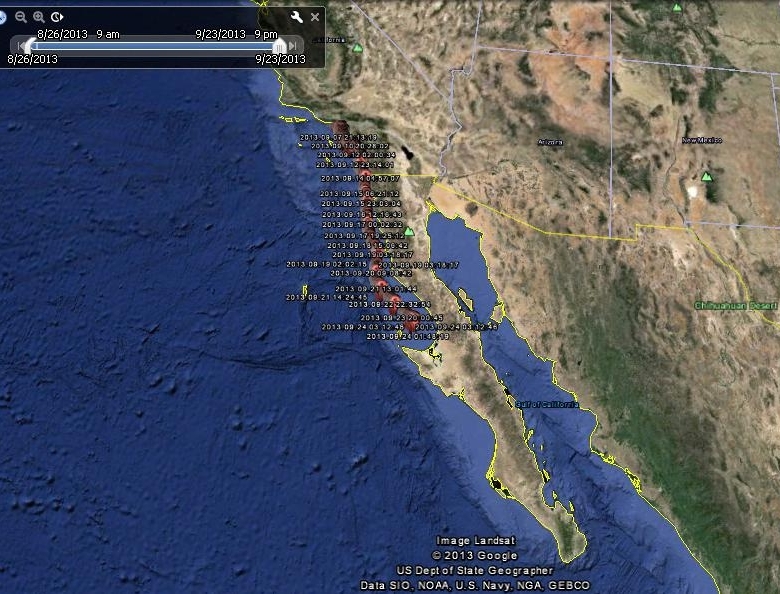
September 24: The turtle is about 430 miles south of its release location.
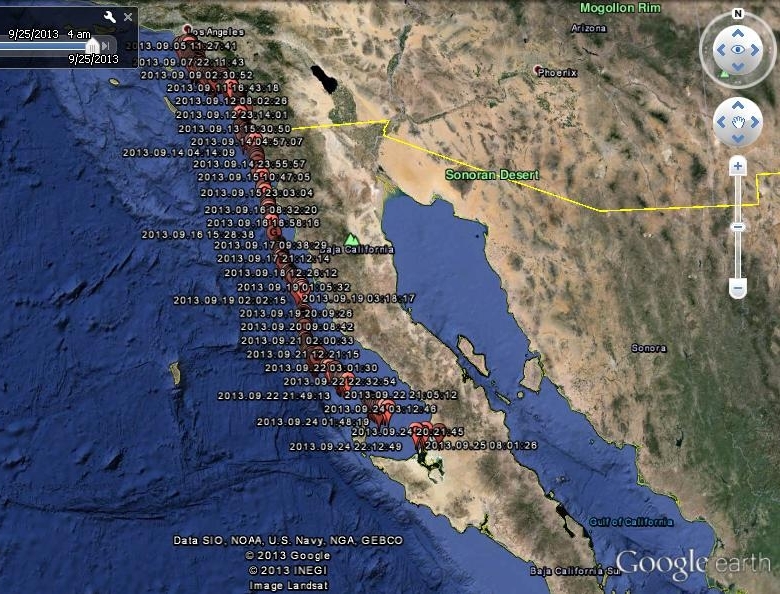
September 25: The turtle is approximately 468 miles south from its release location. It is now very near Guerrero Negro, Baja California.
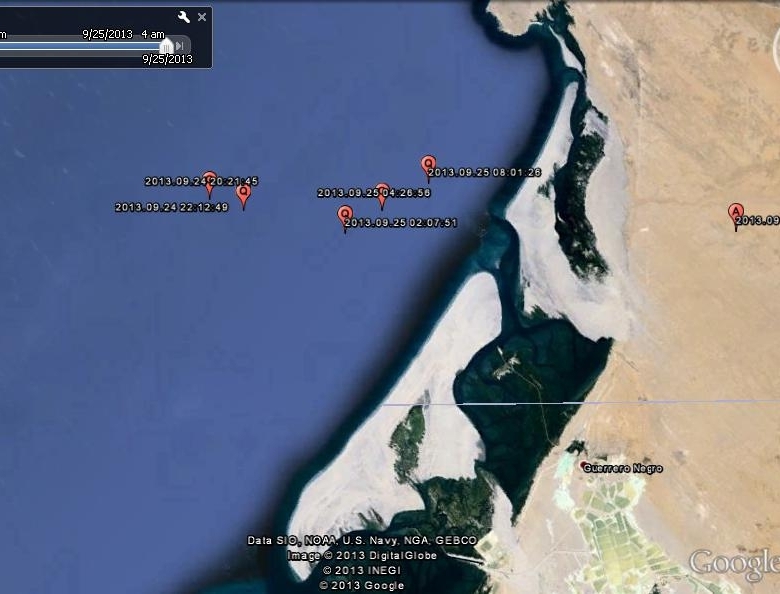
September 25: The turtle has moved in close to shore near a lagoon called Ojo de Liebre. This is a reported breeding and nesting site for the olive Ridley sea turtle, as well as home and a wintering site for many other marine animals.
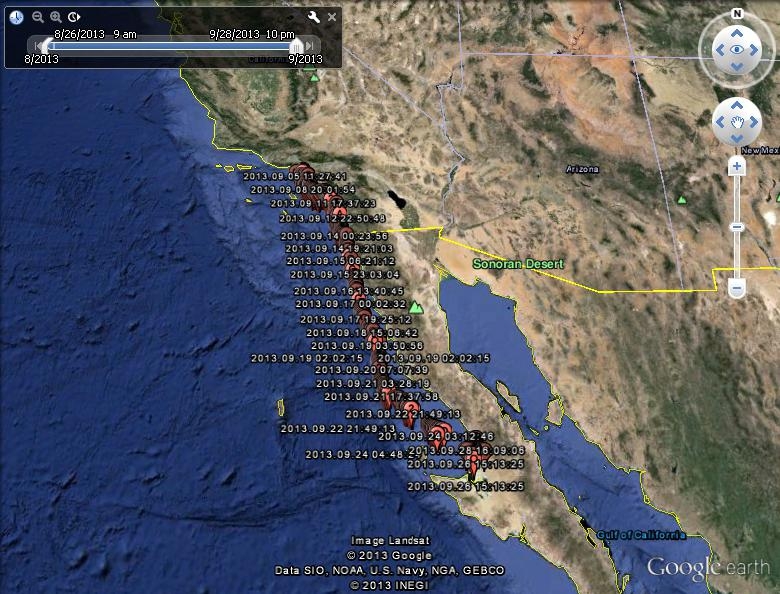
September 28: The sea turtle appears to be staying about three miles off the coast of Baja California.
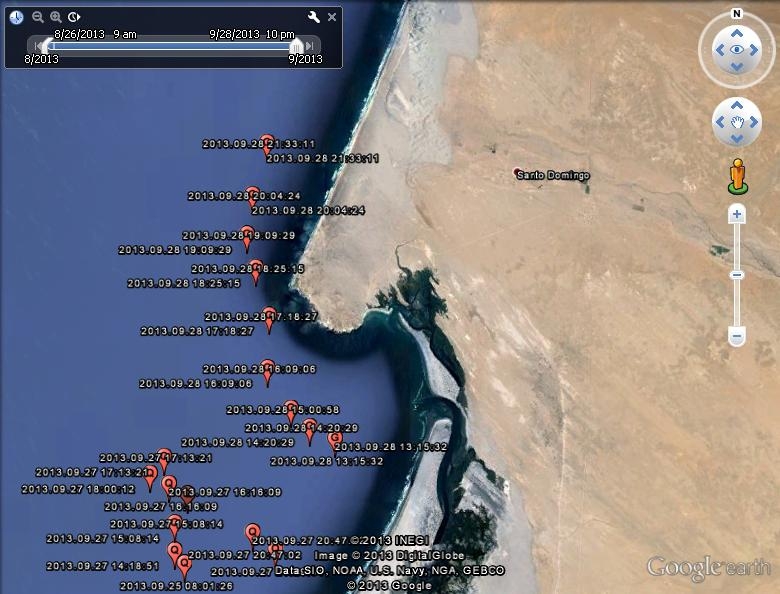
September 28: The turtle is staying within a 20 mile radius in the last few days. The nearest map location on land is the historical site of a mission called Santo Domingo.
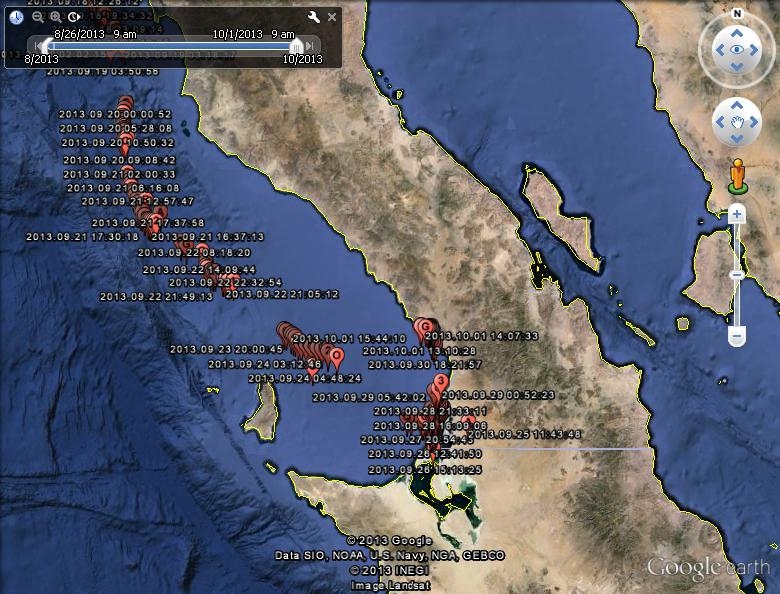
October 1: The sea turtle is moving north along the coastline in Baja California.
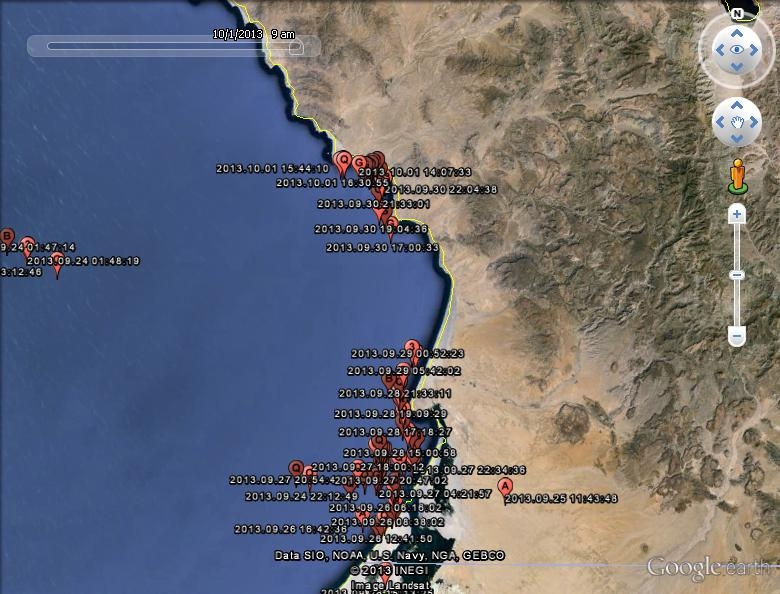
October 1: Here is a close-up view of the turtle’s location map. She is currently traveling about eight to ten miles per day.
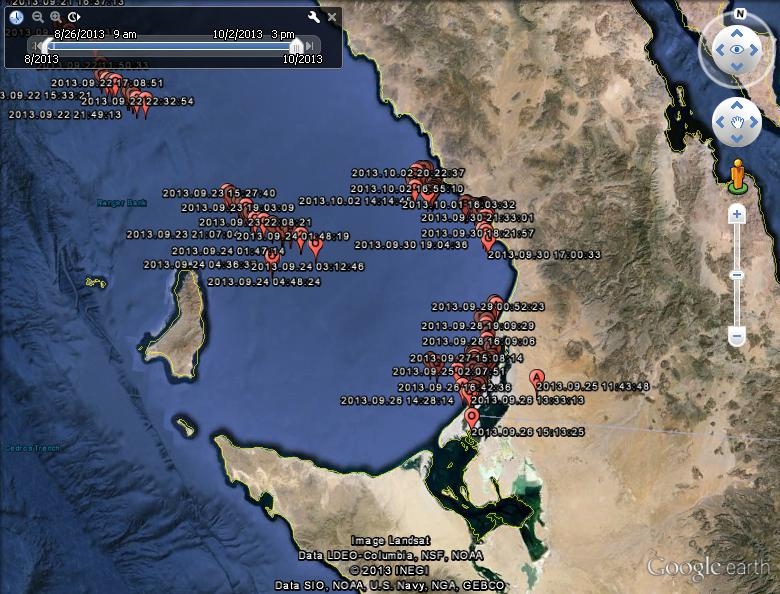
October 2: The turtle is staying within the same general area of Baja California in Sebastián Vizcaíno Bay.
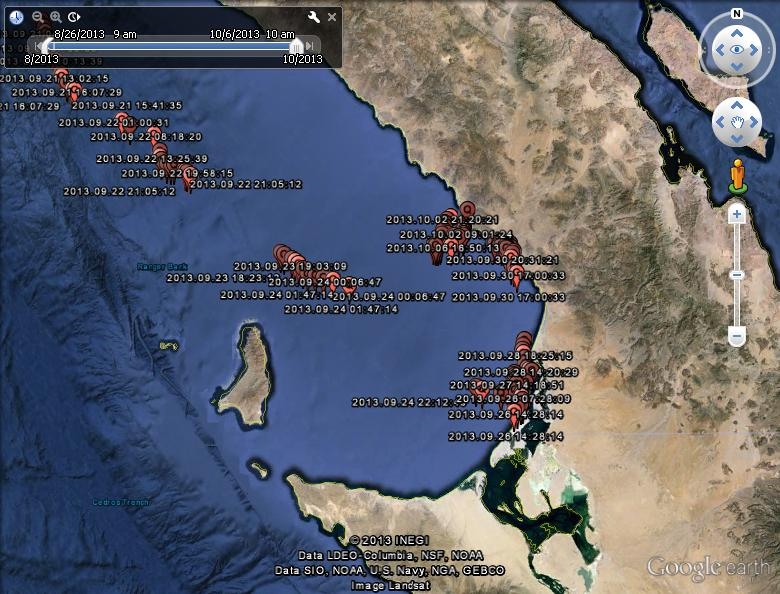
October 6: The sea turtle is staying within about a ten-mile radius of the location she arrived at on October 3.
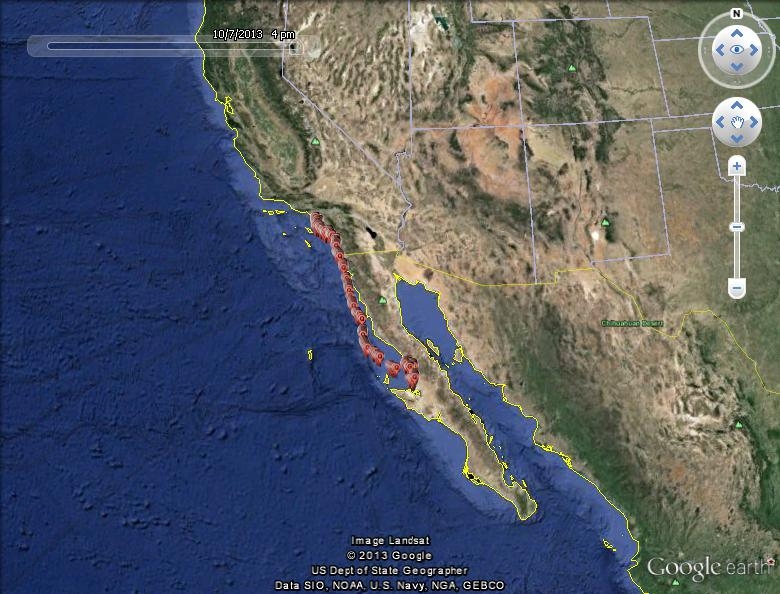
October 7: This map shows the turtle’s overall path to date.
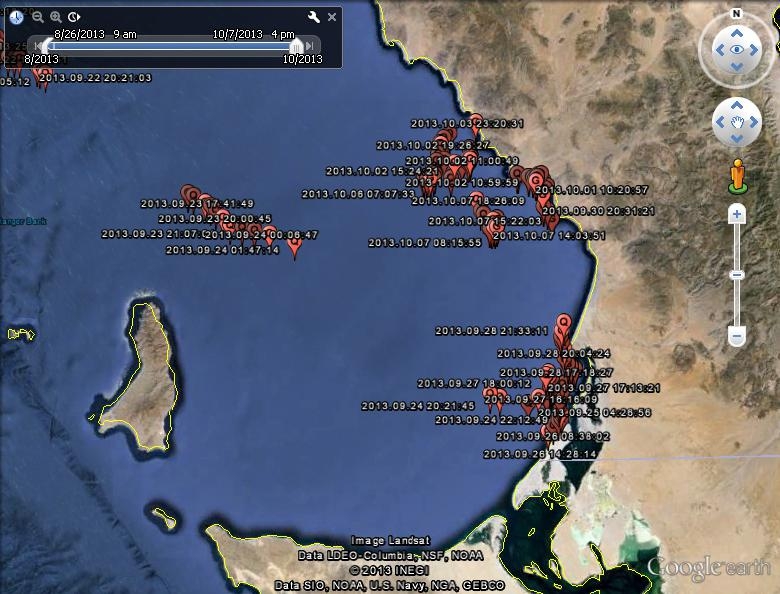
October 7: The turtle has stayed in the same area for about a week.
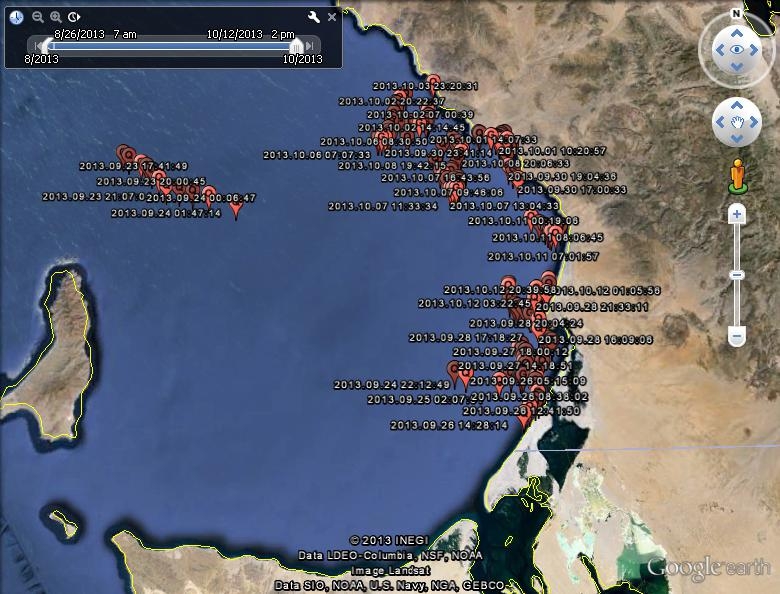
October 12: The turtle is staying in the same general geographic area, moving north and south along the coastline. In the last few days she went in close to the shore and then back out again.
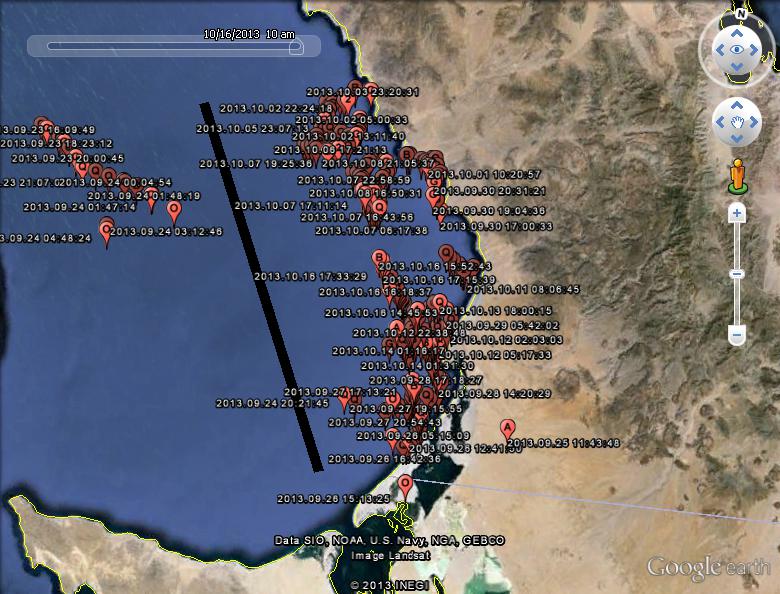
October 17: The sea turtle is staying in the same general geographic area. The black line on the map is about 60 miles.







